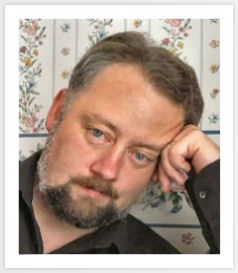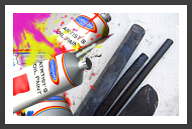My Philosophy
Painting is a blind man's profession. He paints not what he sees, but what he feels, what he tells himself about what he has seen. - Pablo Picasso
Virtually all my work could be categorized as abstract, and I am very comfortable with that. I feel that art of any sort is inherently abstract to a degree, from the near photographic to the completely abstract to the point that it defies comprehension.
If art is all about seeing and I believe that it is, it is therefore, in a sense, an attempt to show another what we are seeing or, more importantly, how we are seeing it.
In this sense, abstract art is intensely personal - almost like pulling a chunk from your soul and holding out in the sunlight to watch it wriggle, twist, and grow or die. It is in this space that I feel comfort because of the risk associated with it.
What stares back at you off the canvas is not always what you were planning on putting there, which makes the painting a journey of exploration. It is this journey that you capture and then share, perhaps with just yourself, a trash can, a close friend, or perhaps even am audience of sorts.
From a very well done explanation of abstract art, Understanding Abstract Art by Harley Hahn, in summary, my goal as the artist is to create a painting that is rendered so skillfully that, when you look at it, what you see actually changes what you feel at an unconscious level.
Your challenge as the viewer is to clear your conscious mind of thoughts and preconceptions in order to allow yourself to be influenced by what you are seeing. This means that, if you are to truly appreciate a work of art, you must be willing to let yourself go, to put yourself in the hands of the artist.

